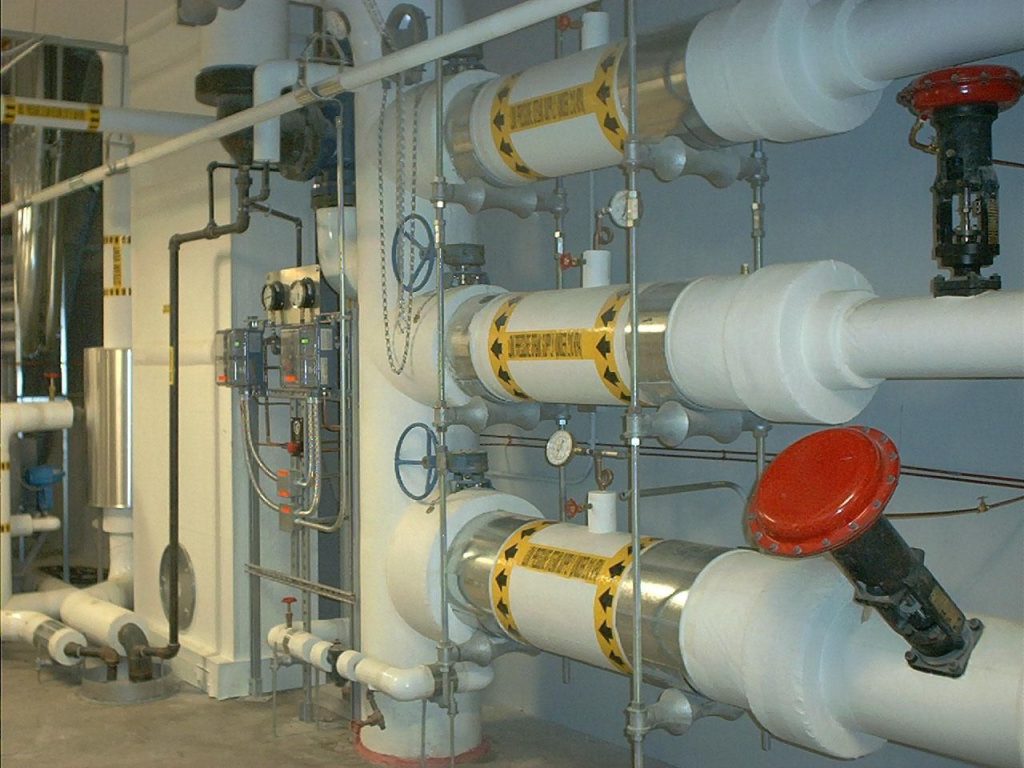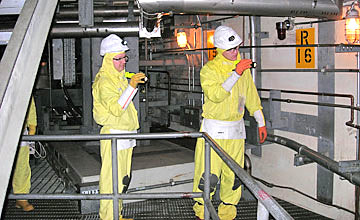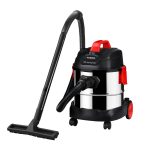Last Updated on May 22, 2024 by Ali Hamza
HVAC inspection
HVAC inspections involve an in-depth analysis of the entire cooling and heating system in your home. As part of their inspection, HVAC technicians determine the age of the HVAC system, evaluate the cleanliness of each component, ensure that every component functions properly, and check the safety mechanisms.

Importance of HVAC inspection
When your HVAC system is old, malfunctioning, or broken, you should have it inspected to avoid surprise expenses and stress. When you settle in, this comprehensive evaluation will determine the efficiency and condition of every part and whether to expect expensive repairs, replacements, or high utility bills.
It is essential to conduct a standard home inspection before moving into a new home in order to identify any glaring problems. The inspector must assess the roof, the structure, and the foundation of the house, as well as test to ensure that all plumbing, electrical, and HVAC systems function correctly.
Read more: Leaky Water Heater: The Reasons Behind The Leaky Water Heater And How To Repair it?
The purpose of this evaluation is to find out if the HVAC equipment turns on and off in general. Despite the importance of home inspections, home inspectors are not HVAC technicians, nor do they possess the HVAC tools necessary for an in-depth examination and understanding of heating and cooling systems.
Make sure your HVAC system receives the attention it needs to keep you comfortable. In addition to negotiating better terms on the house purchase, you may be able to save money on the HVAC unit’s condition.
The life span of HVAC Inspection
You’re not alone if you’re wondering how long an HVAC inspection takes. Heating and cooling equipment type, accessibility, overall condition, and the level of detail of the HVAC inspection all play a role in determining how long the HVAC inspection takes. A typical HVAC inspection can take between 1-3 hours, but it could take longer if multiple systems are involved.
The HVAC contractor provides the homeowner with a System Health Report after the inspection is complete.
Purpose of HVAC inspection
During a commercial HVAC inspection, your ventilation, heating, and air conditioning equipment are analyzed from top to bottom. Both parts of the process examine each system component and determine its efficiency according to the building’s heating and cooling loads. The maintenance schedule will let you know if your equipment needs to be repaired or is on track.
It is essential to get an HVAC inspection for a variety of reasons. An HVAC inspection is necessary before a building is sold to evaluate its existing equipment, for instance. In addition to helping avoid HVAC problems after the sale of the property, the inspection can be helpful to both buyers and sellers.
It is also a good idea to have an HVAC inspection when a building has been unoccupied for an extended period. Many workers have moved from corporate offices to home offices as a result of the COVID-19 pandemic.
Once employees return to work after being offline for a while, inspecting systems that have been offline for a time is essential.
Regularly having your HVAC system checked by a professional is a good idea in addition to these external factors. A good rule of thumb is to have an inspection every six months or at least annually before you turn on the heat or air conditioner.
A heating or air conditioning inspection can always be scheduled outside of these times if tenants notice a problem. It’s important to note that HVAC issues don’t always present apparent symptoms to tenants or employees. You have a clear picture of the health of your HVAC system by having it serviced by trained technicians.
When Should You Inspect Your HVAC System?
An HVAC technician can spot potential and impending problems with a home’s heating and air conditioning system as they examine various parts. For new HVAC systems, inspections should be performed every other year to prevent complications and limit the need for long-term maintenance.
A yearly inspection is necessary for HVAC units, particularly those frequently used, to maintain optimal performance once they age. When a system has been operating for more than ten years, it should be inspected twice a year. It is best to schedule an inspection before your system is most needed. Therefore, having the AC unit inspected in the spring is recommended. Schedule a fall appointment if you need to have your heating system inspected.
When buying a house, you should have an HVAC inspection. By doing a preemptive inspection of a home, it is not always easy to determine how well the previous owners maintained the HVAC system. To ensure a new system works well and meets governmental efficiency standards, it is prudent to conduct inspections after installing it.
Cost of HVAC inspection
Heat, ventilation, and air conditioning, or HVAC, keep you comfortable in winter and cool in summer. Keeping these systems maintained and inspected on a regular basis ensures they function effectively. The HVAC inspection examines the mechanical systems in your home that heat, cool, and circulate air.
The most important thing you can do as a homeowner is to schedule an HVAC inspection. It costs between $250 and $400 to have your HVAC system inspected, with an average homeowner spending $300 for a 1.5 to 2-hour inspection in a mid-sized home with a few minor issues. The minimum cost of an HVAC inspection for a small house with a perfect HVAC system would be $200 an hour. A 2-hour review of a larger home will cost around $450 if extensive repairs need to be made.
FAQs (Frequently Asked Questions)
What is the average time it takes to check the HVAC system?
It typically takes about 1-3 hours to perform an HVAC inspection, but it could take longer if multiple systems are involved. A System Health Report will be provided to homeowners following a HVAC inspection by the HVAC contractor.
Why are HVAC inspections beneficial?
You can prolong the life of your air conditioning and heating system by maintaining it regularly, as well as monitor its energy efficiency by doing so. You are also less likely to experience heating problems when you need them most or encounter expensive emergency repairs with a thorough inspection.
When should HVAC systems be serviced?
Regardless of your equipment type, you should inspect, clean, and service your heating and cooling system every year. Fall is the best time to check your heating system, while spring is the best time to review your air conditioning system.
What is the frequency of freon replacement in HVAC systems?
Some units need to be recharged as little as once a year, while others need to be restored as often as every two years. Only a leak in the system will cause the refrigerant level to drop over time, which is the main exception to this rule.
Apart from this, if you are interested to know more about Leaky Water Heater then visit our Home improvement category.


























